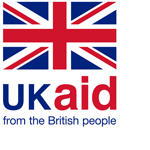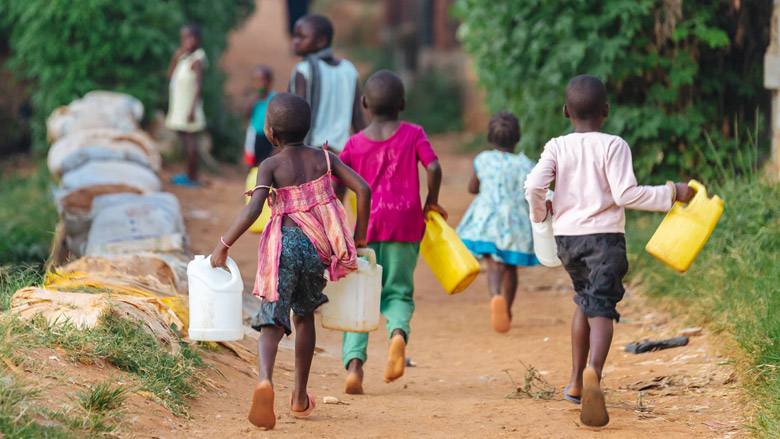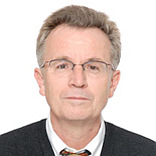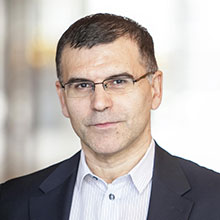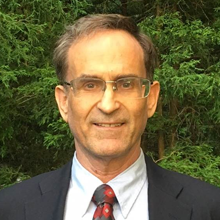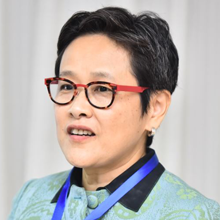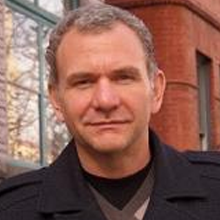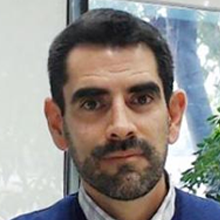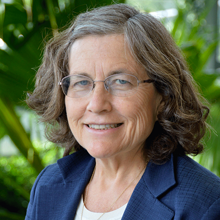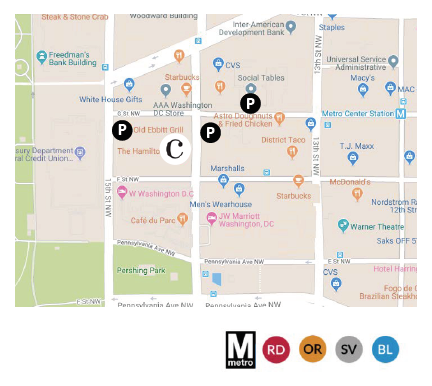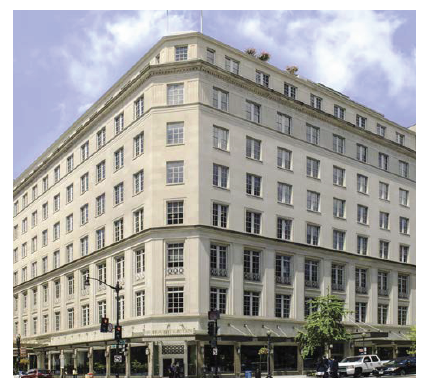Keynote Speaker
Martin Ravallion holds the inaugural Edmond D. Villani Chair of Economics at Georgetown University. Prior to joining Georgetown in 2013 he was Director of the World Bank’s research department, the Development Research Group.
Martin joined the World Bank in 1988 and worked in almost all sectors and all regions over the following 24 years. Prior to joining the Bank, he was on the faculty of the Australian National University. He holds a Ph.D. in economics from the London School of Economics, and (in addition to Georgetown) he has taught economics at L.S.E., Oxford University, the Australian National University, Princeton University and the Paris School of Economics.
Martin’s main research interests over the last 30 years have concerned poverty and policies for fighting it. He has advised numerous governments and international agencies on this topic, and he has written extensively on this and other subjects in economics, including six books and 250 papers in scholarly journals and edited volumes. His latest book, ''The Economics of Poverty: History, Measurement and Policy,'' was published by Oxford University Press in January 2016. A website for the book with supporting material (including teaching aids) is found at economicsandpoverty.com.
Martin is the ex-President of the Society for the Study of Economic Inequality, a Research Associate of the National Bureau of Economic Research, a Non-Resident Fellow of the Center for Global Development and a Senior Fellow of the Bureau for Research in Economic Analysis of Development. Among various prizes and awards, in 2012 he was awarded the John Kenneth Galbraith Prize from the American Agricultural and Applied Economics Association, in 2016 he received a Frontiers of Knowledge Award from the BBVA Foundation, Madrid, and in 2018, he was awarded an Honorary Doctorate in Economics by the University of Fribourg, Switzerland.
Simeon Djankov, Director of Development Economics, was deputy prime minister and minister of finance of Bulgaria from 2009 to 2013.
Prior to his cabinet appointment, Djankov was chief economist of the finance and private sector vice presidency of the World Bank. In his 15 years at the Bank, he has worked on regional trade agreements in North Africa, enterprise restructuring and privatization in transition economies, corporate governance in East Asia, and regulatory reforms around the world.
He is the founder of the World Bank's Doing Business project. He is the author of Inside the Euro Crisis: An Eyewitness Account (2014) and principal author of the World Development Report 2002. He is also coeditor of The Great Rebirth: Lessons from the Victory of Capitalism over Communism (2014) and Europe’s Growth Challenge (2017).
Djankov was previously director of the Financial Markets Group at the London School of Economics, rector of the New Economic School in Russia and a visiting lecturer at Harvard University's Kennedy School of Government. He was chairman of the Board of the European Bank for Reconstruction and Development in 2012–13. He obtained his doctorate in economics in 1997 from the University of Michigan at Ann Arbor.
Marshall Reinsdorf is a researcher in the National Accounts Research Group at the US Bureau of Economic Analysis. After receiving his Ph.D. in Economics from the University of Maryland, Dr. Reinsdorf spent eleven years as a researcher at the U.S. Bureau of Labor Statistics where he did path-breaking work on sources of bias in the Consumer Price Index and links between consumer search behavior and price dispersion. He also did financial research for the Federal Deposit Insurance Corporation where he developed a model for predicting bank failures and non-parametric estimates of the non-linear relation between bank capital ratios and failure probabilities. For the past 12 years he has done research on a wide variety of measurement problems in national accounts and helped to guide several improvements in the national accounts of the United States. Among his current research interest are: actuarial measures of defined benefit pensions, measurement of financial services in national accounts, measurement and analysis of terms of trade effects, international comparisons, and measurement of productivity change. He has been a long time, very active member of the Conference of Research on Income and Wealth (CRIW) of the National Bureau of Economic Research (NBER), helping to organize, presenting papers at or serving as a chair or discussant in numerous sessions over the years. He currently serves as a member of the editorial board of the Review of Income and Wealth and has organized sessions on a variety of topics at past and for the upcoming IARIW General Conferences. He has extensively published on economic measurement topics in academic books and journals, including the American Economic Review, the Review of Economics and Statistics, the International Economic Review, and the Journal of Business and Economic Statistics.
Haishan Fu is the Director of the World Bank’s Development Data Group, overseeing its global development monitoring and open data initiative, surveys and other technical advisory services, and global statistical programs such as the International Comparison Program. In her capacity as the Ex-Officio member of the WBG Data Council and the Co-Chair of the Development Data Directors Group, Haishan leads and coordinates the development and implementation of the Bank’s development data agenda. She has been an active leader in the global statistical community, having served or currently serving as a member of the UN Secretary General’s Independent Expert Advisory Group on Data Revolution for Sustainable Development, Council Member of the International Statistical Institute, and Co-Chair of the Global Steering Committee of the Global Strategy to Improve Agricultural and Rural Statistics, among others.
Prior to joining the Bank in 2014, Haishan was Director of the Statistics Division at UNESCAP, leading the strategic development of a number of regional statistics development programs in Asia and the Pacific. During her time as the Chief of Statistics of UNDP’s Human Development Report, she led the transformation of the Report’s statistical quality and credibility and built an extensive network with national and international statistical agencies and other partners. She spent a number of years doing health policy-related research as a post-doctoral fellow at University of Pennsylvania and Senior Research Associate at the Guttmacher Institute in New York. Haishan holds a Ph.D. in Demography from Princeton University and a B.A. in Economics from Peking University.
Dean Jolliffe is a lead economist in the Development Data Group at the World Bank. He is a member of the Living Standards Measurement Study team and co-lead of the team that works on global poverty measurement (PovcalNet). Previously, he worked in the Research Group and the South Asia region of the World Bank. Prior to joining the World Bank, he was a research economist with the Economic Research Service of the U.S. Department of Agriculture, an assistant professor at Charles University Center for Economic Research and Graduate Education in Prague, an adjunct professor at Johns Hopkins University School of Advanced International Studies, an adjunct professor at Georgetown University Public Policy Institute, and a postdoctoral fellow at the International Food Policy Research Institute. Dean holds appointments as a research fellow with the Institute for the Study of Labor, as a co-opted council member of the International Association for Research in Income and Wealth, and as a fellow of the Global Labor Organization. He received his PhD in economics from Princeton University.
Xavier Mancero is an economist from the San Francisco University of Quito and Master’s in Economics from Georgetown University. Since 2015, he has been Chief of the Social Statistics Unit of the Statistics Division of ECLAC, whose work areas include the measurement and analysis of poverty and income distribution, the compilation and harmonization of household surveys of countries of the region and the production and dissemination of social statistics. Acts as coordinator of activities of the Conference of Statistics of the Americas (CEA) and the follow-up of its working groups.
Trudi Renwick oversees the branches of the U.S. Census Bureau responsible for processing, analyzing and publishing poverty, income and program participation estimates collected in the Current Population Survey's Annual Social and Economic Supplement, the American Community Survey and the Survey of Income and Program Participation.
Her area is also responsible for research on alternative methods of measuring poverty, and Renwick has written a number of papers exploring technical aspects of the supplemental poverty measure.
Renwick joined the Census Bureau in 2008 after working for many years in New York as a senior economist for the Fiscal Policy Institute and the Public Utility Law Project. She has also worked for a number of nonprofit advocacy groups, including Families USA and the National Association of Farmworker Organizations.
James E. Foster is the Oliver T. Carr Professor of International Affairs and Professor of Economics at the George Washington University. He received his Ph.D. in economics from Cornell University and holds a Doctorate Honoris Causa from Universidad Autónoma del Estado de Hidalgo (Mexico).
Professor Foster's research focuses on welfare economics — using economic tools to evaluate and enhance the wellbeing of people. His joint 1984 Econometrica paper (with Joel Greer and Erik Thorbecke) is one of the most cited papers on poverty. It introduced the FGT Index, which has been used in thousands of studies and was employed in targeting the Progresa CCT program in México. Other research includes work on economic inequality with Amartya Sen; on the distribution of human development with Luis Felipe Lopez-Calva and Miguel Szekely; on multidimensional poverty with Sabina Alkire; and on literacy with Kaushik Basu. Foster regularly teaches introductory and doctoral courses on international development and each spring joins with Professor Basu in presenting an undergraduate course on Game Theory and Strategic Thinking, to which staff and Board members of the World Bank are also invited. Professor Foster is also Research Fellow at the Oxford Poverty and Human Development Initiative (OPHI), Department of International Development, Oxford University, and a member of the Human Capital and Economic Opportunity (HCEO) Working Group, Becker Friedman Institute for Research in Economics, University of Chicago. This year he is serving on the World Bank’s Commission on Global Poverty.
Professor John Gibson is currently Professor of Economics at the Waikato Management School. A graduate of Lincoln University, John has a doctorate from Stanford University. His teaching and research interests are in microeconomics and in the micro econometric aspects of development, labor and the international economy. His other research interests include poverty measurement, where he was a member of an expert group advising the United Nations Statistical Division, and the design and analysis of household survey data, and economic development, especially in China and other Asian and Pacific economies.
John’s work includes a large number of publications on topics of central importance to New Zealand and Asia-Pacific. These publications have appeared in top ranked journals globally.
His work on Pacific migrants in New Zealand utilizing an administratively determined randomized design (together with co-authors David McKenzie and Steven Stillman) is particularly noteworthy both for its quality and for its importance in learning about migration outcomes.
He is one of the top four published authors over the first 50 years of New Zealand Economic Papers. Thus, he contributes strongly to domestic economic discourse as well as contributing on an international stage.
Carolina Sánchez-Páramo, a Spanish national, is currently the Global Director of the Poverty and Equity Global Practice (GP) at the World Bank. Prior to this assignment, she was the Poverty and Equity GP Practice Manager in the Europe and Central Asia region. Carolina has worked on operations, policy advice and analytical activities in Eastern Europe, Latin America and South Asia, and was part of the core team working on the WDR2012, “Gender Equality and Development”.
Her main areas of interest and expertise include labor economics, poverty and distributional analysis, gender equality and welfare impacts of public policy. She has led reports on poverty and equity, labor markets and economic growth in several countries, as well as social sector operations. She has published articles in refereed journals and edited books on the topics described above. Carolina has a PhD in Economics from Harvard University.
